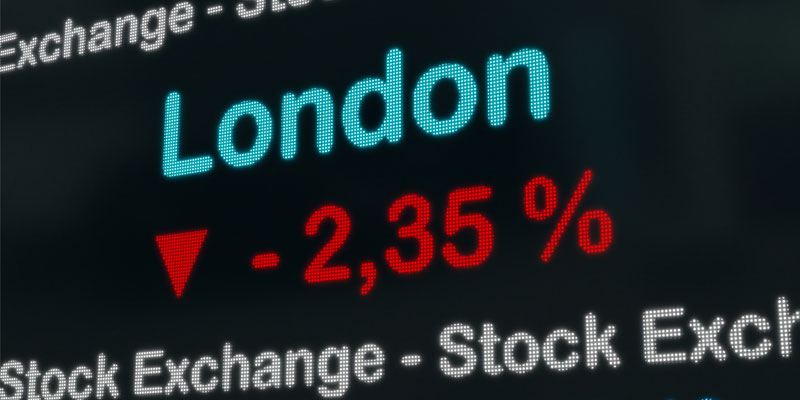- Joined
- 31 Aug 2005
- Messages
- 4,170
- Reaction score
- 395
- Country

I am intrigued to see what Labour choses to do in the up n coming budget. I see oh JohnD the wise one mentioned what tools can be used to get the country out of a recession, which we are currently in. (hair splitters Fo please we are not exactly deep in recession but scraping the barrel poor).
Weve never had less, spending down, local facilities are reduced, health care suffering, yet what did the Tories do? Oh that's right allow the BOE to put up interest rates to benefit the banks that's right lets squeeze the last pennies out of the public in interest rates, basically a banking tax on the public as none of that money goes into the UK tax payers pot remember, under the guise of 'reducing inflation' How absolutely fcked up is that? How about cap energy and household running costs that were inflaTING.
There's some pretty intelligent people on these forums, in this country in fact, is it that you earn so much money already you just roll with it??
Ok so lets ask the Oracle (no not JohnD) what a typical best practice way is to kick start an economy. All of the below seems blatantly fcking obvious. Instead i bet Labour do none of it, instead they will just 'tax the rich more'. Which is a falicy as the rich have enough money to move their money around in such a way they avoid punitive taxes believe me i see it everywhere.
Why can't a party in power just give us a break, drop the interest rates and use a flat rate Tax, tax afterall is a PERCENTAGE, the more you earn the more you pay. Where is the incentive for hard workers to earn more?
A person earning 100k pays about 6times more tax than somebody on 25k. (if i recollect i may have to revisit my stats).
You can't buy a second home anymore and rent it as you're taxed to fck.
The only routes are an ISA or Pension (pension is relying on the fact you will make it to retirement age thats not a given(!), or would you rather blow that money when you're young enough to spend it properly? No you dont get an option 25% only at 55 or the rest is Taxed)
Why doesn't the goverment just give us some credibility, and say hey ok you can go 20% flat rate tax but you pay for your own health care etc? Instead they insist on ripping every spare penny from us to spend on what? PPE Scandals Arms deals and so many other projects where money dissapears down the toilet. I would argue most of us public wanting to take our own route would spend that money far more efficiently than a public servant with no accountability in 4 years time. They don't care.
Here's what ChatGPT reckons, perhaps it should run our country????
Getting a country out of a recession typically requires a mix of policy measures aimed at stimulating economic growth, increasing employment, and restoring confidence. Here are some key techniques that governments and policymakers can use:
1. Fiscal Policy
Increased Government Spending: Governments can boost public spending on infrastructure projects, healthcare, education, and other public services. This creates jobs, stimulates demand, and can have a multiplier effect on the economy.
Tax Cuts and Incentives: Reducing taxes on individuals and businesses can increase disposable income and encourage spending and investment. Tax incentives can also stimulate specific sectors, such as renewable energy or technology.
Direct Stimulus Payments: Providing direct payments to citizens can boost consumption and help struggling households.
2. Monetary Policy
Lowering Interest Rates: Central banks can reduce interest rates to make borrowing cheaper for consumers and businesses, encouraging spending and investment.
Quantitative Easing: This involves the central bank purchasing government bonds or other financial assets to inject liquidity into the economy, lowering long-term interest rates and encouraging investment.
Credit Easing: Similar to quantitative easing, but focused on private sector assets to improve credit conditions for businesses and households.
3. Supply-Side Policies
Deregulation: Reducing unnecessary regulations can lower costs for businesses and encourage entrepreneurship and innovation.
Improving Labor Market Flexibility: Reforms to labor laws can make it easier for businesses to hire and retain workers, and for workers to find jobs that match their skills.
4. Trade and Investment Policies
Promoting Exports: Supporting export industries through subsidies, tax breaks, or improving trade agreements can help boost economic activity.
Attracting Foreign Investment: Creating a favorable environment for foreign investors can bring capital, technology, and jobs.
5. Structural Reforms
Strengthening Financial Systems: Ensuring a stable and resilient banking system can restore confidence and facilitate lending.
Investing in Education and Training: Enhancing the workforce's skills and adaptability can improve productivity and long-term growth prospects.
6. Social Policies
Social Safety Nets: Strengthening social welfare programs can support those most affected by the recession, reducing inequality and supporting aggregate demand.
Healthcare and Housing: Investing in healthcare and affordable housing can improve the overall well-being of the population and support economic stability.
Weve never had less, spending down, local facilities are reduced, health care suffering, yet what did the Tories do? Oh that's right allow the BOE to put up interest rates to benefit the banks that's right lets squeeze the last pennies out of the public in interest rates, basically a banking tax on the public as none of that money goes into the UK tax payers pot remember, under the guise of 'reducing inflation' How absolutely fcked up is that? How about cap energy and household running costs that were inflaTING.
There's some pretty intelligent people on these forums, in this country in fact, is it that you earn so much money already you just roll with it??
Ok so lets ask the Oracle (no not JohnD) what a typical best practice way is to kick start an economy. All of the below seems blatantly fcking obvious. Instead i bet Labour do none of it, instead they will just 'tax the rich more'. Which is a falicy as the rich have enough money to move their money around in such a way they avoid punitive taxes believe me i see it everywhere.
Why can't a party in power just give us a break, drop the interest rates and use a flat rate Tax, tax afterall is a PERCENTAGE, the more you earn the more you pay. Where is the incentive for hard workers to earn more?
A person earning 100k pays about 6times more tax than somebody on 25k. (if i recollect i may have to revisit my stats).
You can't buy a second home anymore and rent it as you're taxed to fck.
The only routes are an ISA or Pension (pension is relying on the fact you will make it to retirement age thats not a given(!), or would you rather blow that money when you're young enough to spend it properly? No you dont get an option 25% only at 55 or the rest is Taxed)
Why doesn't the goverment just give us some credibility, and say hey ok you can go 20% flat rate tax but you pay for your own health care etc? Instead they insist on ripping every spare penny from us to spend on what? PPE Scandals Arms deals and so many other projects where money dissapears down the toilet. I would argue most of us public wanting to take our own route would spend that money far more efficiently than a public servant with no accountability in 4 years time. They don't care.
Here's what ChatGPT reckons, perhaps it should run our country????
Getting a country out of a recession typically requires a mix of policy measures aimed at stimulating economic growth, increasing employment, and restoring confidence. Here are some key techniques that governments and policymakers can use:
1. Fiscal Policy
Increased Government Spending: Governments can boost public spending on infrastructure projects, healthcare, education, and other public services. This creates jobs, stimulates demand, and can have a multiplier effect on the economy.
Tax Cuts and Incentives: Reducing taxes on individuals and businesses can increase disposable income and encourage spending and investment. Tax incentives can also stimulate specific sectors, such as renewable energy or technology.
Direct Stimulus Payments: Providing direct payments to citizens can boost consumption and help struggling households.
2. Monetary Policy
Lowering Interest Rates: Central banks can reduce interest rates to make borrowing cheaper for consumers and businesses, encouraging spending and investment.
Quantitative Easing: This involves the central bank purchasing government bonds or other financial assets to inject liquidity into the economy, lowering long-term interest rates and encouraging investment.
Credit Easing: Similar to quantitative easing, but focused on private sector assets to improve credit conditions for businesses and households.
3. Supply-Side Policies
Deregulation: Reducing unnecessary regulations can lower costs for businesses and encourage entrepreneurship and innovation.
Improving Labor Market Flexibility: Reforms to labor laws can make it easier for businesses to hire and retain workers, and for workers to find jobs that match their skills.
4. Trade and Investment Policies
Promoting Exports: Supporting export industries through subsidies, tax breaks, or improving trade agreements can help boost economic activity.
Attracting Foreign Investment: Creating a favorable environment for foreign investors can bring capital, technology, and jobs.
5. Structural Reforms
Strengthening Financial Systems: Ensuring a stable and resilient banking system can restore confidence and facilitate lending.
Investing in Education and Training: Enhancing the workforce's skills and adaptability can improve productivity and long-term growth prospects.
6. Social Policies
Social Safety Nets: Strengthening social welfare programs can support those most affected by the recession, reducing inequality and supporting aggregate demand.
Healthcare and Housing: Investing in healthcare and affordable housing can improve the overall well-being of the population and support economic stability.



